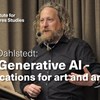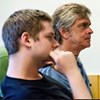kissing

Reducing populations' vulnerabilities to mis-disinformation related to scientific content
The purpose of this project is to develop evidence-based strategies to address populations’ vulnerabilities to scientific mis-disinformation.
Post doc for project on how social norms emerge and change
We are seeking a strong and highly motivated candidate with a background in experimental sociology, economics, or social psychology for a postdoctoral position. The advertised position is a two-year po, the Principal Investigator of the five years Wallenberg Foundation Project
Too much or too little? A short-term longitudinal study of youth's own economic resources and risk behaviour.
Journal of Adolescence, Vol 66, pp. 21-30, doi.org/10.1016/j.adolescence.2018.04.005. Abstract This study examined socioeconomic differences in risk behaviours according to youth-oriented measures of eco
Mass Reproducibility and Replicability: A New Hope
I4R Discussion Paper 107 Abstract This study pushes our understanding of research reliability by reproducing and replicating claims from 110 papers in leading economic and political science journals. Th
Palle Dahlstedt: Big generative AI - Implications for creativity, art, and artists
Date & Time: Wednesday, June 12 at 10:00-11:45 (CET)Venue: Institutet för framtidsstudier, Holländargatan 13, 4th floor, Stockholm, or online. Research seminar with Palle Dahlstedt, Professor in In

Big generative AI - Implications for creativity, art, and artists
Research seminar with Palle Dahlstedt, Professor in Interaction Design at Gothenburg University. In this lecture, Palle Dahlstedt will share a pragmatic, critical, and visionary view of what machine l
A research agenda for the study of social norm change
Philosophical transactions A. Royal Society Publishing Abstract Social norms have been investigated across many disciplines for many years, but until recently, studies mainly provided indirect, implicitresearch may move beyond unequivocal praising of social norms as the missing link between selfinterestedbehaviour and observed cooperation or as the explanation for (the lack of) social tipping. It provides the toolkit to understand explicitly where, when and how social norms can be a solution to solve large-scale problems, but also to recognize their limits. This article is part of the theme issue ’Emergent phenomena in complex physical and socio-technical systems: from cells to societies’.
“AI’s inherent incomprehensibility is a unique flaw.”
Being able to explain how something works has value, but being able to explain whyit works is enormously more valuable, because that knowledge can be built upon. The fact that AI is inherently incompreherecently. In this interview below she explains further.
Professor Thomas Lindh has passed away
Today we mourn the passing of Thomas Lindh, a respected researcher, an appreciated colleague and a dear friend. Professor Thomas Lindh has been a coworker at the Institute for Futures Studies for many

Creating happy animals in order to eat them: Jeff McMahan and Tim Campbell
In recent debates about the ethics of eating animals, some have advanced the claim that if people cause animals to exist and give them good lives in order to be able to eat them, then even if the anim








